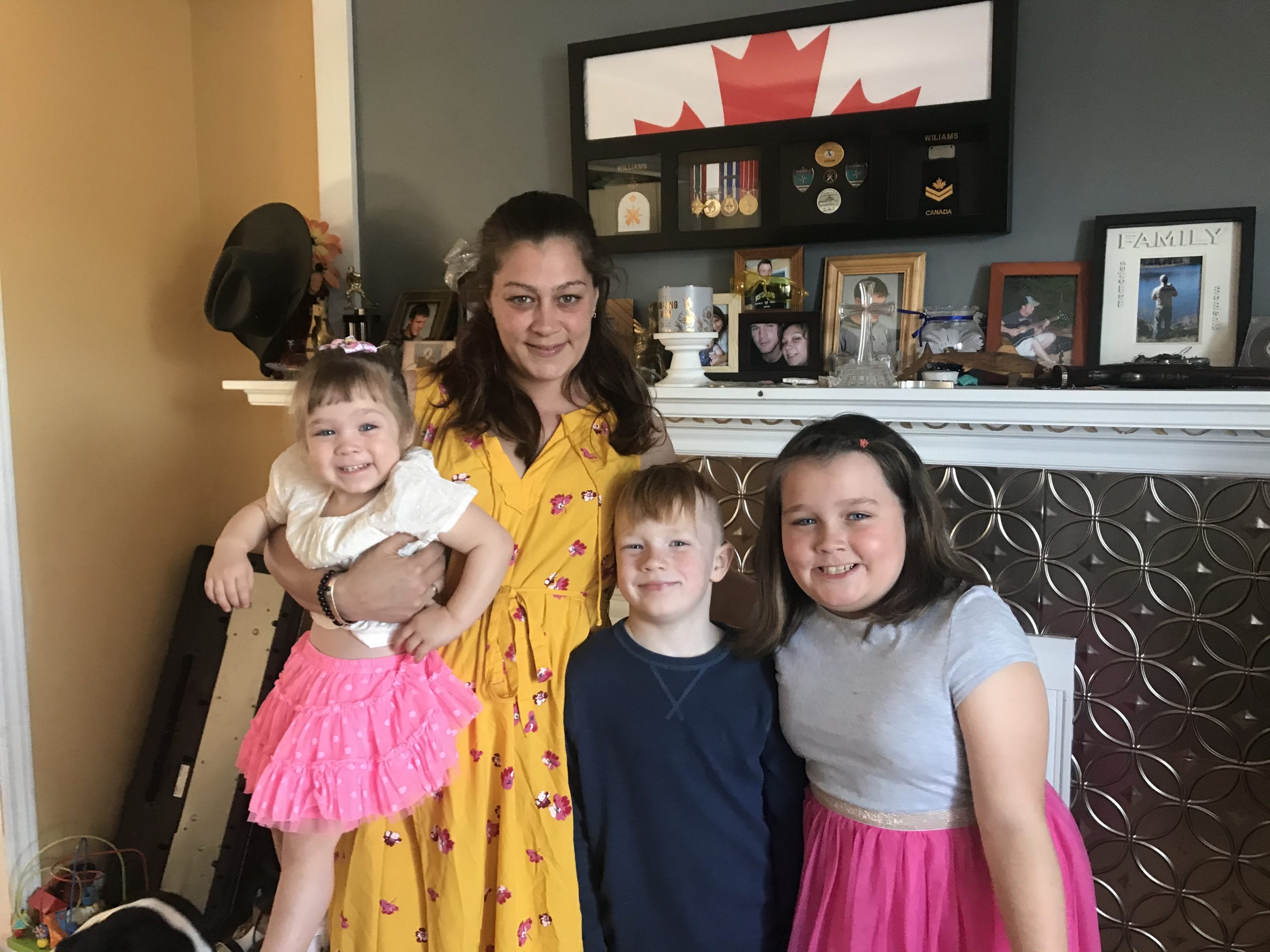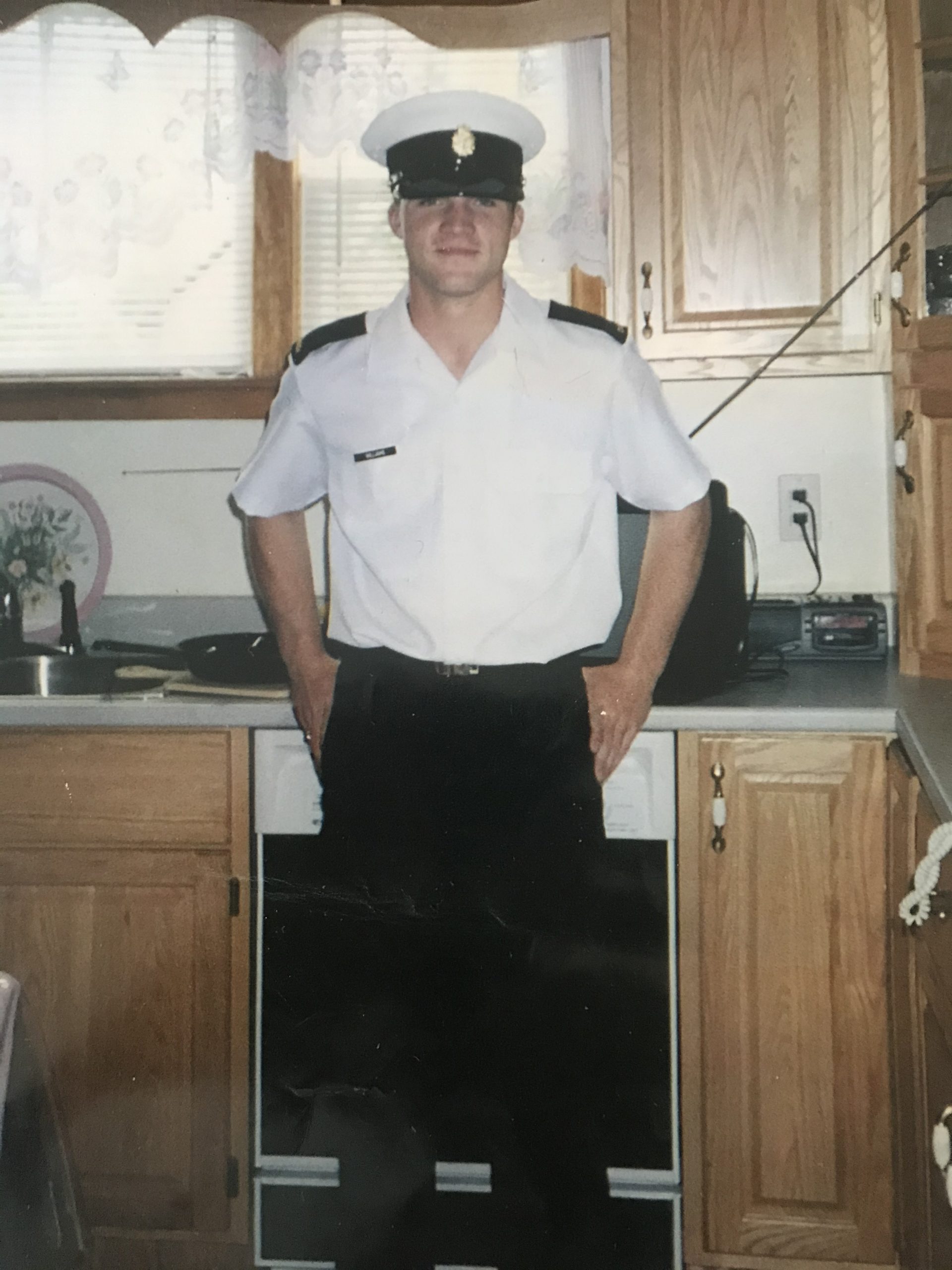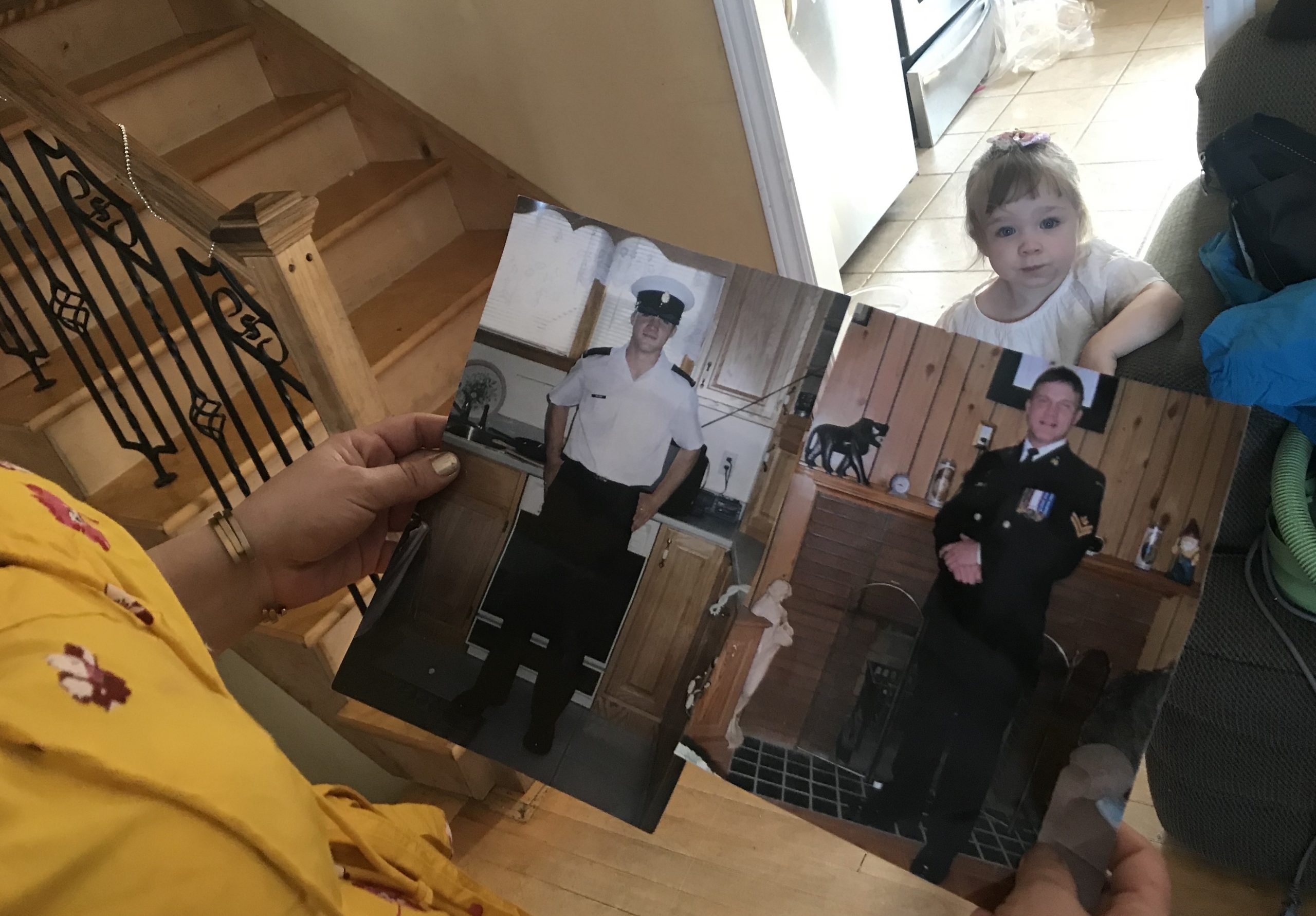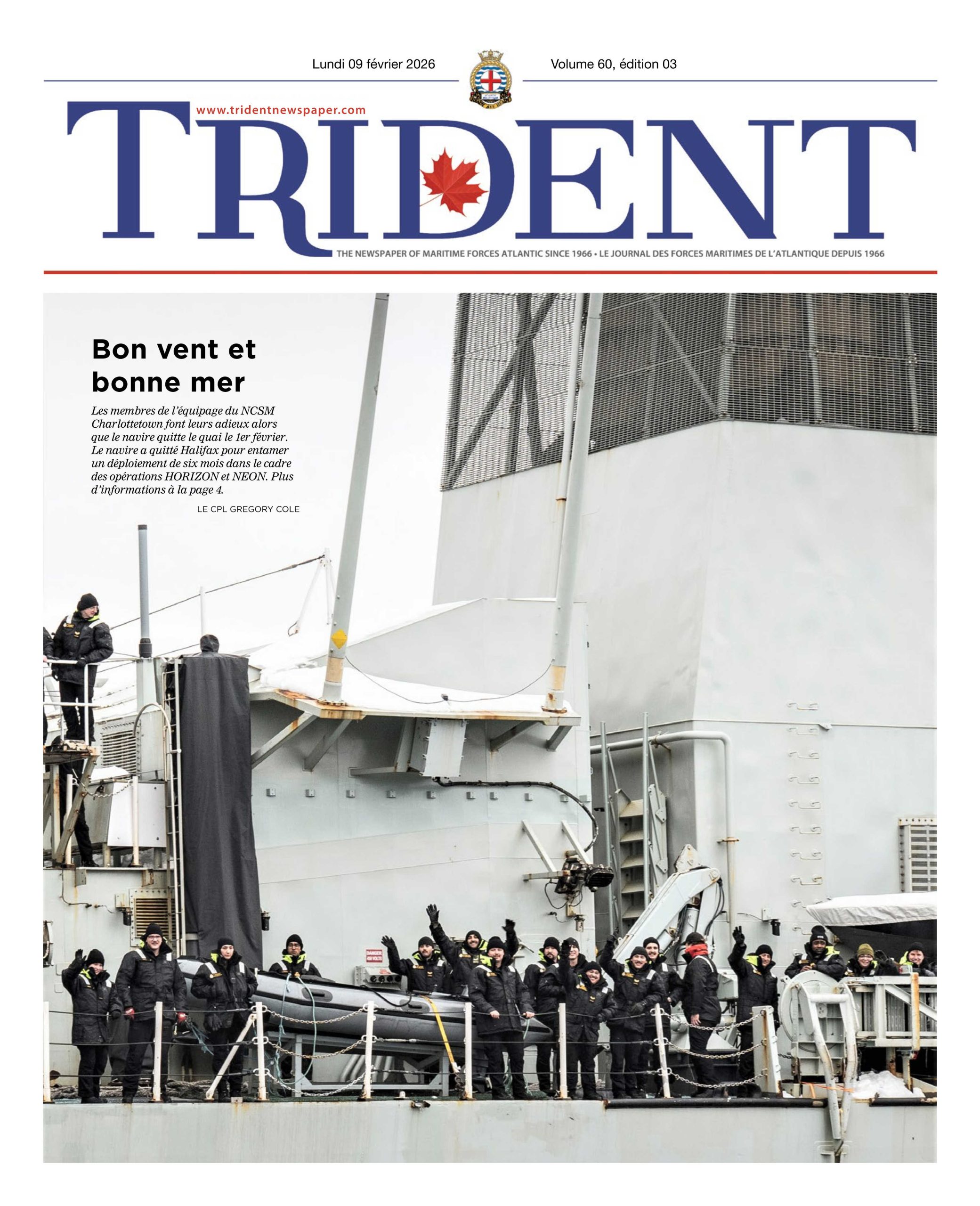
JOANIE VEITCH
How organ donation and RCN support is helping a grieving family
Par Joanie Veitch,
Équipe du trident
When Chris Williams died following a catastrophic car crash near his home in West Chezzetcook on July 25, 2019, his family took comfort in knowing his organs would go on to save other lives.

SOUMIS
Williams, who served in the Royal Canadian Navy for more than 18 years, died in hospital on August 1, 2019, after a harrowing week of fading hope for his family. The trauma he’d suffered in the accident, most notably to his brain, left no further medical options. When the health care team gave the devastating news to his spouse and parents, followed by a discussion about organ donation, they didn’t hesitate.
“I signed the papers immediately,” says Donna Taker, Williams’ wife. “It was severe brain damage, I knew it and knew there was nothing more they could do…but we could do this. He could save other lives.”
Taker knew it’s what Williams would have wanted because they’d talked about it several times, most recently less than a year before he died, after they went to get him a new health card. Smiling as she looks at one of the many pictures of Williams on display in their home, Taker recalls how eager he was to show her the ‘donor 1’ printed on his card.
“He was so proud of that. We had talked about it at different times so I knew that’s what he would have wanted,” she says. “He had such a big personality, he always wanted to give. That’s just who he was.”
Williams was just 40 years old when he died, leaving Taker to raise their three young children on her own: Elizabeth, Vincent and Sophia. Sophia, who was only five months old at the time of his accident, is now two and likes to carry around a large photo of her dad sleeping with her cradled in the crook of his arm.
“We talk about him all the time, I want the kids to know their dad and feel him here with us still,” says Taker.
Like Sophia, Elizabeth and Vincent, now eight and seven years old respectively, also like looking at pictures of their dad, especially the ones of him wearing his naval uniform, taken in their home some years back.
“I miss him a lot. I wish I could put my head on his chest and just hear his heartbeat,” says Elizabeth.
New NS law a first in North America
April is National Organ and Tissue Donation Awareness Month. A lot has changed in terms of organ donation in Nova Scotia in recent months. When Williams died, families had to sign consent forms to enable their family member to become an organ donor. Even if someone had, like Williams, agreed to be an organ donor when they signed their health card registration form, if their next of kin didn’t sign the consent paperwork at the hospital, the person could not be an organ donor.
This past January, Nova Scotia became the first place in North America to enact an opt-out organ and tissue donation law, meaning that all adults are now presumed to be donors unless they register to opt out.
According to Nova Scotia Health, a single organ donor can save up to eight lives, and a single tissue donor can save or improve the lives of 50 to 80 people. On average, 10 Atlantic Canadians die waiting for a transplant each year — a statistic that the new law hopes to improve.
Even with the new opt-out law, however, not everyone can be an organ donor.
“It is important for Nova Scotians to understand that organ donation opportunities are rare and we cannot afford to miss them,” explains Dr. Stephen Beed, the medical director of the Nova Scotia Organ Donation Program, in a speech given to the Standing Committee on Health last December.
“In a given year, about 4000 deaths occur in hospitals in Nova Scotia, but less than 80 will meet screening medical criteria for organ donation and only around 20 will go on to donate.”
Williams donated six organs when he died — heart, kidneys, liver, pancreas and spleen, as well as tissues — saving six lives and improving the quality of life for several more. Just a few weeks ago, a certificate of recognition of that gift arrived in the mail, signed by the premier.
“He saved six lives that day. It helps, you know, just to know what he did…it helps us. We’re proud of him,” Taker says, holding a picture of Williams and looking at her three children.
“Willy was one of the good ones”
During his time in the Navy, Williams served on deployments with HMC Ships Halifax et Montreal, as well as working on the Stadacona base, before leaving the RCN in 2017.

JOANIE VEITCH, TRIDENT STAff
CP02 Joe Dickie remembers when he first met “Willy” as he was known to most people, back in 2005 when they were both young sailors. “He was a good guy; he was the type of person that if you were with him, you were smiling.”
S1 Kaelen Michaud was posted to HMCS Montreal with Williams in 2014. She was young — just 19 years old at the time — and remembers Williams helping to show her the ropes. They became good friends and, over the years, she got to know Taker and the children as well.
When Taker called her from the hospital the morning after the accident, S1 Michaud went to the hospital right away to support her friend in any way she could. She’s still doing that, checking in most days by FaceTime or Messenger text, just to see how she is.
Last August, on the one-year anniversary of Williams’ death, S1 Michaud organized a ‘celebration of life’ gathering at Taker’s house, bringing her big white tablecloth and making large trays of food.
“What she’s been through and the situation she’s in, it’s incredibly hard, but she’s doing it and she’s doing a good job,” S1 Michaud says. “I want her to know she’s not alone, and she’s not.”
In the days following Williams’ accident, CP01 Dickie was also in contact with Taker and put out a call to other RCN members to help support the family, stocking the fridge and gathering a work crew of more than a dozen people to clean up around the house, paint and do repairs — even taking on major jobs, such as building a mantle atop the fireplace so there would be a place to display photos and William’s RCN shadow box with his medals.
“Given this specific situation… I determined that the standard bouquet of flowers was much too far from what was required and, therefore, decided to go all in with a team of shipmates to get Donna and her little ones the boost they needed,” he says.
Like S1 Michaud, he’s stayed in contact, bringing gifts for the children each year at Christmas and on their birthdays.
Although there’s no standard code of practice, RCN members tend to look out for one another, and their families, in challenging times.
“As sailors, we get thrown together and spend every waking and sleeping hour together… you really get to know each other,” says CP01 Dickie. “Willy was one of the good ones.”






